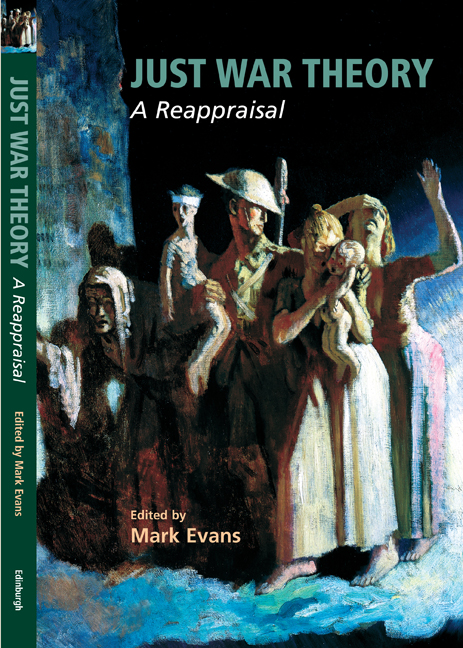Book contents
- Frontmatter
- Contents
- Notes on the Contributors
- Preface and Acknowledgements
- Introduction Moral Theory and the Idea of a Just War
- JUST CAUSE
- 1 The Justice of Preemption and Preventive War Doctrines
- 2 Punitive Intervention: Enforcing Justice or Generating Conflict?
- 3 In Humanity’s Name: Democracy and the Right to Wage War
- JUSTICE IN THE CONDUCT OF WAR
- 4 The Concept of Proportionality: Old Questions and New Ambiguities
- 5 Just War? Just Children?
- 6 Is There a Supreme Emergency Exemption?
- JUSTICE AND THE END OF WAR
- 7 Security Beyond the State: Cosmopolitanism, Peace and the Role of Just War Theory
- 8 Forgiveness and Reconciliation in Jus Post Bellum
- CONCLUSION
- In Defence of Just War Theory
- Bibliography
- Index
Introduction Moral Theory and the Idea of a Just War
Published online by Cambridge University Press: 03 October 2020
- Frontmatter
- Contents
- Notes on the Contributors
- Preface and Acknowledgements
- Introduction Moral Theory and the Idea of a Just War
- JUST CAUSE
- 1 The Justice of Preemption and Preventive War Doctrines
- 2 Punitive Intervention: Enforcing Justice or Generating Conflict?
- 3 In Humanity’s Name: Democracy and the Right to Wage War
- JUSTICE IN THE CONDUCT OF WAR
- 4 The Concept of Proportionality: Old Questions and New Ambiguities
- 5 Just War? Just Children?
- 6 Is There a Supreme Emergency Exemption?
- JUSTICE AND THE END OF WAR
- 7 Security Beyond the State: Cosmopolitanism, Peace and the Role of Just War Theory
- 8 Forgiveness and Reconciliation in Jus Post Bellum
- CONCLUSION
- In Defence of Just War Theory
- Bibliography
- Index
Summary
To begin the reappraisal of just war theory, it is helpful to gain a sense, albeit brief and partial, of how it has evolved to date. I shall thus say something about the history of the just war tradition in the West. To orient the subsequent discussions I then formulate one particular version of the theory, which I believe represents its most sympathetic contemporary exposition. As stressed in the preface, it must not be thought that the contributors to this book all accept my formulation or even the tradition in general. But the stated version will function to highlight both the almost generic features of the doctrines within the tradition as well as certain particular features that, I argue, may be included to remedy the defects of some alternative statements of the theory.
THE DEVELOPMENT OF THE JUST WAR TRADITION
War has been a central feature of civilisation throughout recorded time and it is hardly surprising, therefore, that a concern with – or indeed anguish over – its moral justifications should feature so prominently, across cultures, in so many past and present theories of morality. The term ‘just war theory’, however, is usually employed to denote that specific body of moral doctrine found within Christianity. Even though it can be presented with different theistic bases as well as in purely secular terms, then, the theory under review in this book can be thought of as the direct descendant of the Christian just war tradition. It is worth sketching the story of its historical unfolding.
The question as to whether Jesus himself was an absolute pacifist remains a matter of perhaps unresolvable debate; there is, however, no doubting his general opposition to the use of violence. His teachings offer striking rejections of the celebration of martial virtues, according to which wars can be glorious and warriors heroic embodiments of humanity at its noblest: themes which were central to the ideology of the Roman Empire under which he lived. For Jesus, ‘How blest are the peacemakers; God shall call them his sons.’ Rejecting the doctrine of retribution, he says, ‘Do not set yourself against the man who wrongs you. If someone slaps you on the right cheek, turn and offer him your left.’ Enemies should be loved and prayed for, not cursed – or, by implication, destroyed.
- Type
- Chapter
- Information
- Just War TheoryA Reappraisal, pp. 1 - 22Publisher: Edinburgh University PressPrint publication year: 2020



